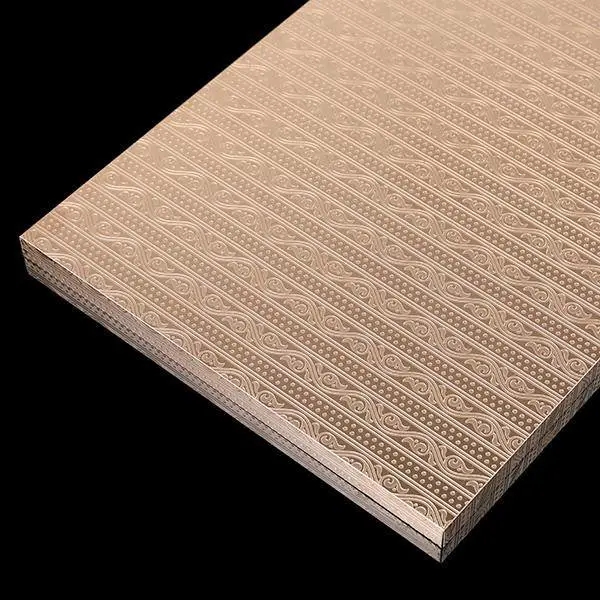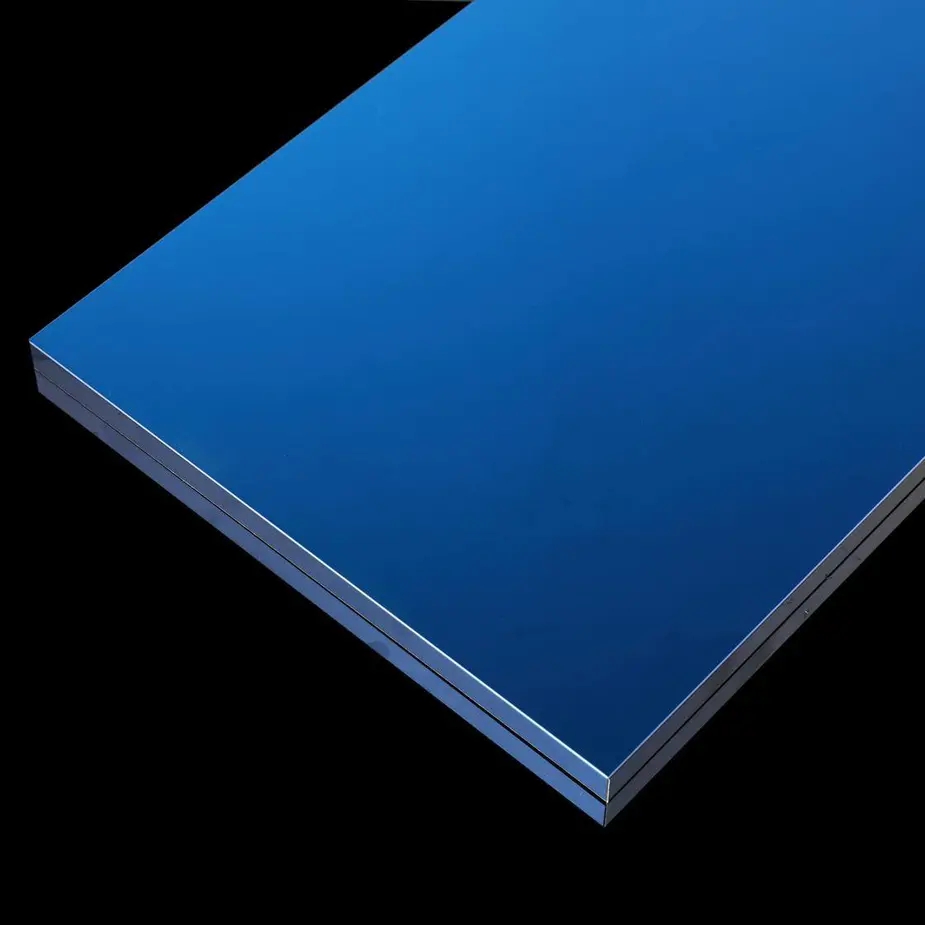When it comes to selecting a reliable 304 stainless steel coil supplier, there are several key factors to consider. As a widely used and versatile material, 304 stainless steel coils are essential for various industries, from food processing and pharmaceutical equipment to automotive components and architectural applications. To ensure that you receive high-quality products that meet your specific needs, it's crucial to partner with a reputable supplier who can deliver consistent results. In this comprehensive guide, we'll explore the essential aspects of choosing a 304 stainless steel coil supplier, helping you make an informed decision for your business.
Understanding 304 Stainless Steel Coils
Before diving into the selection process, it's important to have a clear understanding of what 304 stainless steel coils are and their unique properties. Also known as 18/8 stainless steel, 304 grade contains a minimum of 18% chromium and 8% nickel, which contribute to its excellent corrosion resistance and durability.
304 stainless steel coils are produced by rolling stainless steel slabs into thin sheets and then coiling them for easy storage and transportation. These coils are available in various thicknesses, widths, and finishes to accommodate different manufacturing requirements.
Key Properties of 304 Stainless Steel Coils
- Excellent corrosion resistance in various environments
- Good formability and weldability
- High strength and durability
- Attractive appearance with a range of surface finishes
- Non-magnetic in the annealed condition
- Resistant to oxidation at high temperatures up to 870°C (1598°F)
Factors to Consider When Choosing a 304 Stainless Steel Coil Supplier
1. Quality and Certifications
One of the most critical aspects of selecting a 304 stainless steel coil supplier is ensuring that they adhere to strict quality standards and hold relevant certifications. Look for suppliers with ISO 9001 (Quality Management), ISO 14001 (Environmental Management), and OHSAS 18001 (Occupational Health and Safety) certifications. These certifications demonstrate the supplier's commitment to maintaining high-quality products and processes while prioritizing environmental sustainability and employee safety.
Additionally, ensure that the supplier provides materials that meet ASTM, EN, or other industry-specific standards, depending on your requirements. This guarantees that the 304 stainless steel coils you receive are consistent in composition, mechanical properties, and performance.
2. Product Range and Customization
A reliable 304 stainless steel coil supplier should offer a wide range of sizes, thicknesses, and finishes to cater to your specific needs. This flexibility allows you to select the most suitable products for your applications, optimizing your manufacturing processes and end results.
Moreover, some suppliers provide customization options, enabling you to order coils with specific dimensions, tolerances, or surface treatments. This level of customization can be particularly beneficial for specialized projects or unique applications that require precise specifications.
3. Technical Expertise and Support
Partnering with a 304 stainless steel coil supplier that possesses extensive technical knowledge and experience can be invaluable for your business. A knowledgeable supplier can provide guidance on material selection, processing techniques, and troubleshooting, helping you optimize your operations and overcome challenges.
Look for suppliers with a dedicated technical support team that is readily available to answer your questions and provide assistance when needed. This level of support can help streamline your manufacturing processes, reduce downtime, and improve overall efficiency.
4. Lead Times and Delivery
Timely delivery is crucial for maintaining a smooth production flow and meeting your own deadlines. When evaluating potential 304 stainless steel coil suppliers, inquire about their typical lead times and delivery options. A reliable supplier should have a well-established supply chain and be able to consistently deliver your orders on time.
Some suppliers may offer just-in-time (JIT) delivery, which can help reduce your inventory costs and optimize your storage space. This can be particularly beneficial for businesses with limited storage capacity or those looking to minimize their inventory holding costs.
5. Pricing and Value
While price is an important consideration, it should not be the sole determining factor when choosing a 304 stainless steel coil supplier. Instead, focus on finding a supplier that offers the best value for your investment, balancing quality, service, and cost.
Compare prices from multiple suppliers and consider factors such as material grade, surface finish, and delivery terms. Keep in mind that higher-quality materials may come at a premium, but they can often result in better performance, longer product life, and reduced maintenance costs in the long run.
6. Reputation and References
Researching a supplier's reputation and seeking references from their existing customers can provide valuable insights into their performance and reliability. Look for case studies, testimonials, or reviews that highlight the supplier's track record in delivering high-quality 304 stainless steel coils and exceptional customer service.
Reach out to industry peers or associations for recommendations and feedback on potential suppliers. This can help you gauge their level of expertise, responsiveness, and overall customer satisfaction.
Top 304 Stainless Steel Coil Suppliers
To help you start your search for a reliable 304 stainless steel coil supplier, here are some reputable companies to consider:
- Xinguangyuan Steel Co., Ltd. (China)
- Jain Steels (India)
- Rolled Steel Products (USA)
- Combined Metals, Inc. (USA)
- YES Stainless International Co., Ltd. (Taiwan)
These suppliers have established themselves as leaders in the industry, offering a wide range of high-quality 304 stainless steel coils and exceptional customer service. However, it's essential to conduct your own research and due diligence to find the supplier that best aligns with your specific needs and requirements.
Conclusion
Choosing the right 304 stainless steel coil supplier is a critical decision that can significantly impact the quality, performance, and profitability of your products. By considering factors such as quality and certifications, product range and customization, technical expertise and support, lead times and delivery, pricing and value, and reputation and references, you can identify a supplier that meets your unique needs and helps your business thrive.
Remember to take the time to thoroughly evaluate potential suppliers, request quotes, and ask questions to ensure that you make an informed decision. Building a strong, long-term relationship with a reliable 304 stainless steel coil supplier can help streamline your operations, improve your products, and ultimately contribute to your company's success.
Frequently Asked Questions (FAQ)
1. What is the difference between 304 and 304L stainless steel coils?
304L stainless steel coils have a lower carbon content (0.03% max) compared to standard 304 (0.08% max). This lower carbon content makes 304L more resistant to intergranular corrosion, particularly in welded applications. 304L is often preferred for heavy gauge components or when post-weld annealing is not possible.
2. Can 304 stainless steel coils be used for food processing equipment?
Yes, 304 stainless steel coils are widely used in the food processing industry due to their excellent corrosion resistance, durability, and ease of cleaning. The non-porous surface of 304 stainless steel prevents bacterial growth and ensures hygienic conditions, making it an ideal choice for food processing equipment, storage, and transportation.
3. What surface finishes are available for 304 stainless steel coils?
304 stainless steel coils are available in a variety of surface finishes, including:
- No. 1: Hot rolled, annealed, and pickled
- No. 2B: Cold rolled, annealed, pickled, and skin-passed
- No. 2D: Cold rolled, annealed, and pickled
- No. 4: Brushed finish
- BA: Bright annealed
- HL: Hair line finish
- Mirror: Polished to a mirror finish (6K, 8K, etc.)
The choice of surface finish depends on the specific application, aesthetic requirements, and desired performance characteristics.
4. How do I determine the right thickness and width for my 304 stainless steel coil application?
The appropriate thickness and width of a 304 stainless steel coil depend on several factors, including the intended application, required strength, formability, and any specific design or manufacturing constraints. Consult with your supplier's technical support team or refer to industry standards and guidelines to determine the most suitable dimensions for your project.
5. Can 304 stainless steel coils be welded?
Yes, 304 stainless steel coils have excellent weldability and can be welded using various methods, such as TIG, MIG, and resistance welding. When welding 304 stainless steel, it is recommended to use a filler material like 308 stainless steel to ensure compatibility and maintain the corrosion resistance of the welded joint. For heavy gauge components or applications where post-weld annealing is not feasible, 304L stainless steel coils are preferred due to their lower carbon content and increased resistance to intergranular corrosion.


